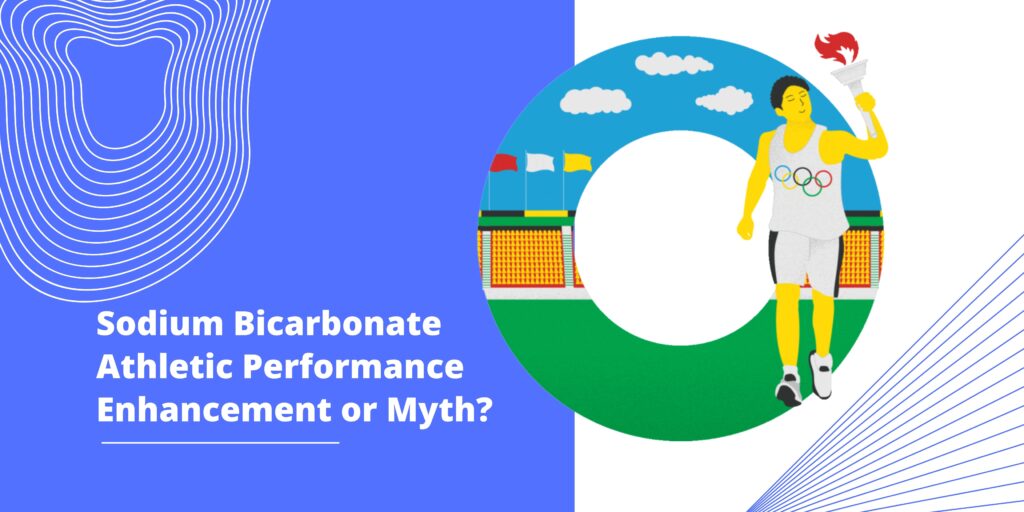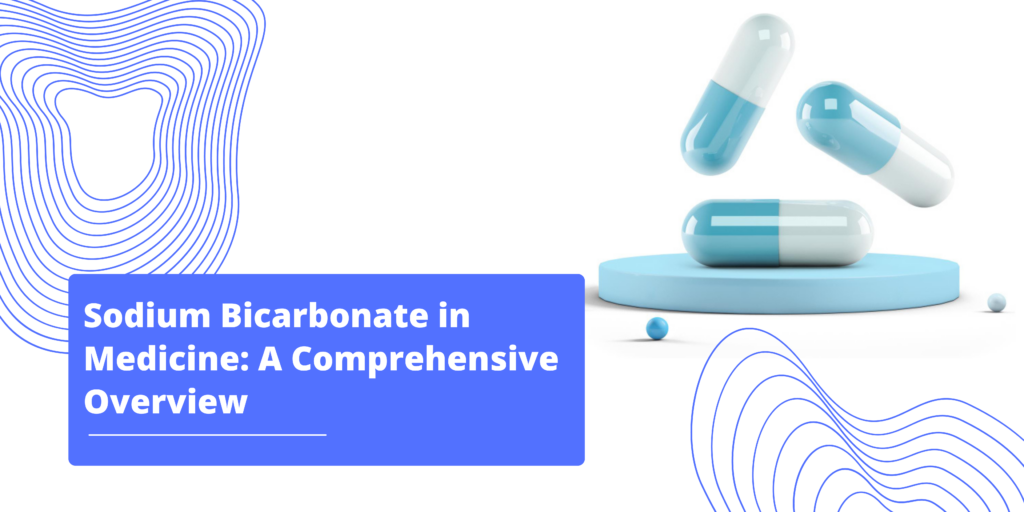
Athletes are constantly looking for strategies to outperform their rivals in the realm of sports and fitness. The search for better performance spans specialized diets and cutting-edge gear. Baking soda, also known as sodium bicarbonate, is one chemical that has received attention recently. This common food item has received praise for its potential as a supplement to help athletes perform better. But are these assertions true, or are they just another fitness myth? We shall examine the science of sodium bicarbonate and its potential application to sports performance in this article.
Let’s first examine sodium bicarbonate’s possible advantages for athletes before moving on to its mechanism of action. White, crystalline sodium bicarbonate has the chemical formula NaHCO3. Due to its leavening qualities, it is better known as baking soda and is frequently used in baking and cooking. Its uses, however, go far beyond the kitchen.
Sodium bicarbonate has a high pH and is an alkaline chemical. It can serve as a buffer when consumed, assisting in controlling the pH levels in the body. The pH of the body is tightly regulated to preserve a slightly alkaline environment that is necessary for a number of metabolic processes.
The Science Behind Sodium Bicarbonate and Performance
The potential of sodium bicarbonate to affect the body’s acid-base balance has led to interest in it as an ergogenic aid, or something that improves physical performance. Lactic acid is produced by the muscles during vigorous activity, creating an acidic environment inside the muscular tissue. This acidity can increase muscular fatigue and make it more difficult for athletes to continue making high-intensity efforts.
This acidity is thought to be neutralized by sodium bicarbonate, which functions as a buffer. When consumed, it increases the blood’s pH level and decreases acidity. As a result, athletes may be able to continue performing at a high level for a longer period of time and delay the onset of muscle tiredness.
Research on Sodium Bicarbonate and Athletic Performance
Numerous research has looked into how supplementing with sodium bicarbonate affects how well athletes perform in endurance sports like running, cycling, and swimming. Here are a few important results from recent research:
Improved Time-to-Exhaustion: Research has shown that supplementing with sodium bicarbonate can lengthen the amount of time it takes for an endurance activity to be completed. The ability to maintain higher intensity for longer periods of time has been noted by athletes.
Increased Sprint Performance: While endurance athletes have benefited, some study indicates that sodium bicarbonate may also enhance brief, intense endeavors like sprinting or weightlifting. This is important for athletes who play sports that call for sudden bursts of force.
Reduced Perception of Fatigue: Sodium bicarbonate might also have an effect on how tired an athlete feels. Some users claim to have less weariness both during and after exercise, which can enhance performance.
Individual Variability: It’s significant to remember that each person responds differently to sodium bicarbonate treatment. While some athletes perceive notable improvements, others might not notice any change or might even endure gastrointestinal pain as a side effect.
Practical Considerations
While the possible advantages of sodium bicarbonate for improving sports performance are fascinating, athletes and coaches should keep the following things in mind:
Dosage and Time: When supplementing with sodium bicarbonate, time and dosage are crucial. Usually taken as a solution a few hours before activity, by athletes. Although the precise dosage varies, it is crucial to adhere to evidence-based guidelines and seek professional advice.
Gastrointestinal Problems: Some people may experience bloating, nausea, and diarrhea when using sodium bicarbonate. Before utilizing it in competition, athletes should test out lower doses in training.
Legal and Ethical Considerations: Although sodium bicarbonate is not typically prohibited in sports, it is nevertheless important to review the policies of individual sporting organizations and think about the moral ramifications of using performance-enhancing drugs.
Conclusion
Baking soda, also known as sodium bicarbonate, has gained popularity as a supplement for athletes looking to improve their performance. The science underlying its effectiveness is based on its capacity to buffer the body’s acidity, which can prevent muscle exhaustion during strenuous exercise. According to research, sodium bicarbonate may help sprinters, high-intensity athletes, and endurance athletes.
But it’s important to understand that everyone responds differently to sodium bicarbonate supplementation, and there might be adverse effects including gastrointestinal discomfort. Athletes who are thinking about using it should speak with medical professionals, experiment with dosages while training, and be familiar with the laws and guidelines of their specific sports.
In conclusion, while sodium bicarbonate has potential as a tool for improving performance, it is not a panacea, and its advantages can depend on a number of different variables. The quest of athletic excellence should always be guided by individualized approaches and well-informed decisions, just like with any supplement or training method.




